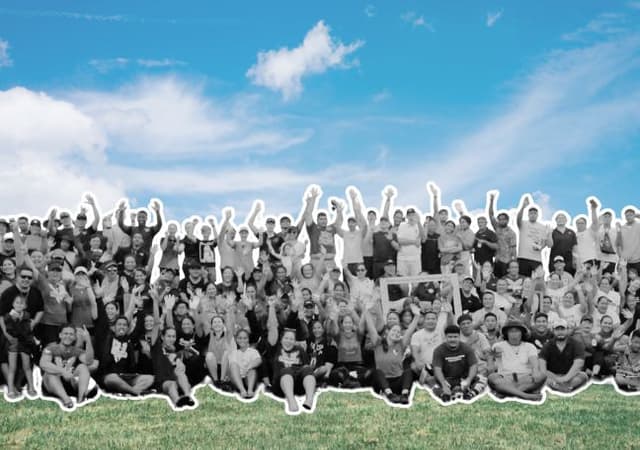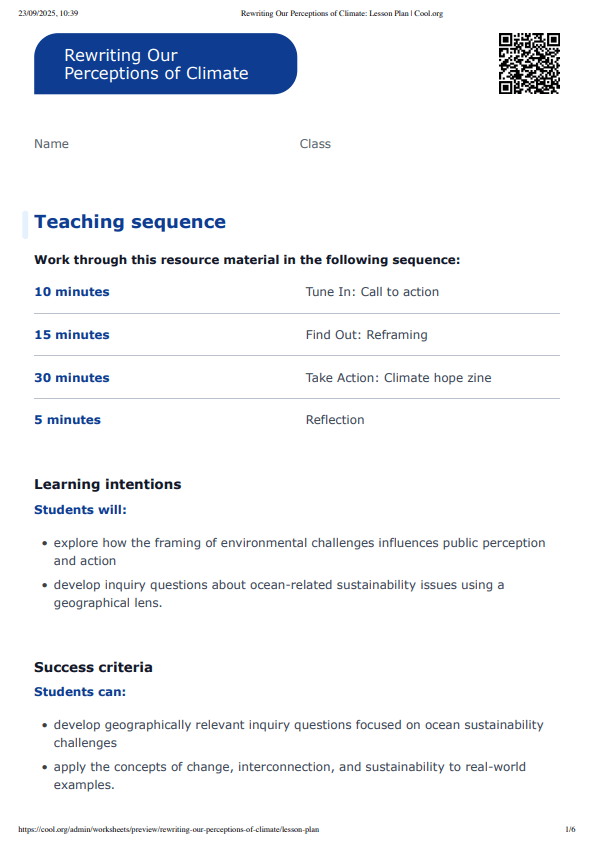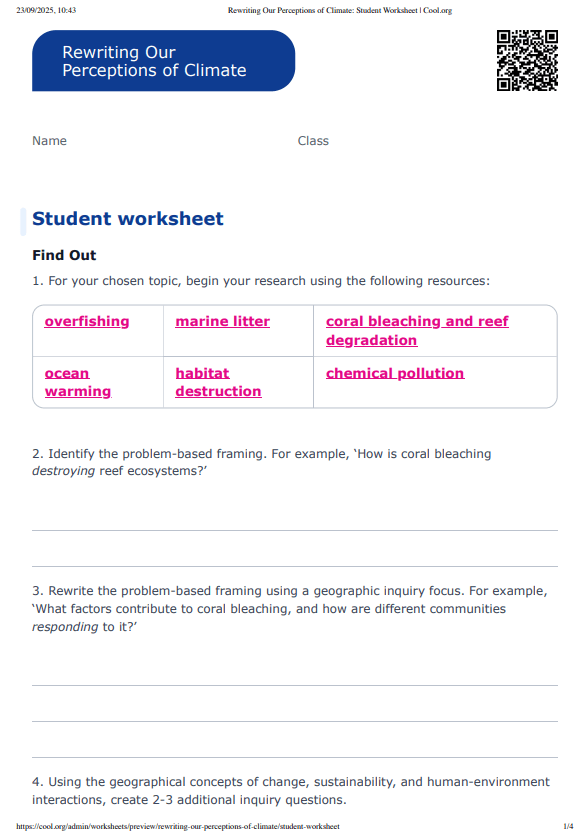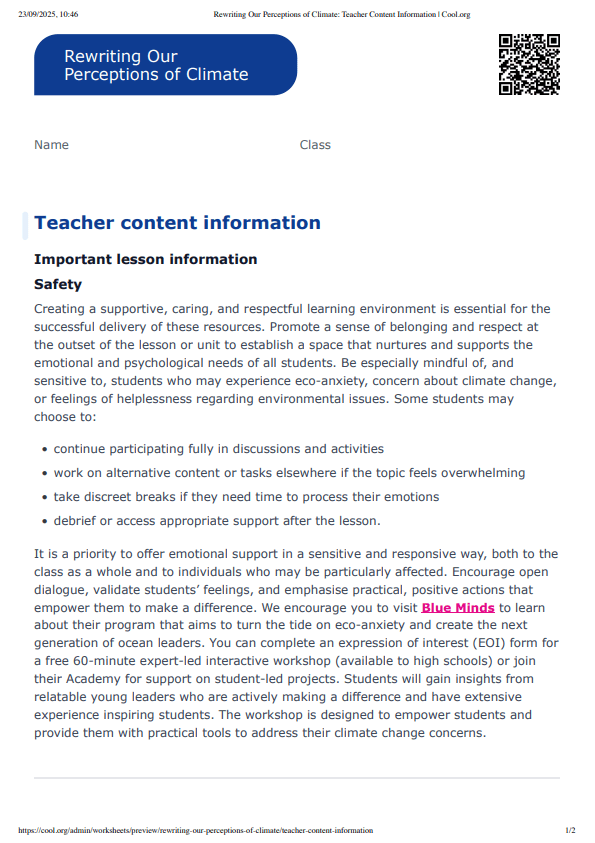Learning intentions
Students will:
- explore how the framing of environmental challenges influences public perception and action
- develop inquiry questions about ocean-related sustainability issues using a geographical lens.
Success criteria
Students can:
- develop geographically relevant inquiry questions focused on ocean sustainability challenges
- apply the concepts of change, interconnection, and sustainability to real-world examples.



